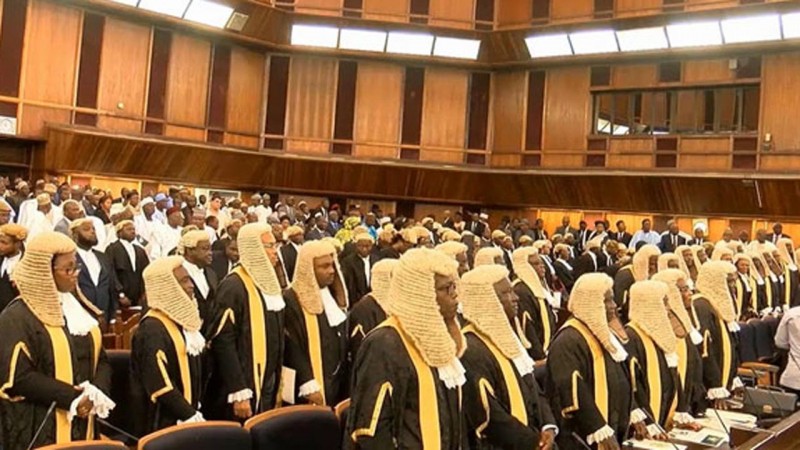The judiciary has become a focal point of controversy in recent weeks, receiving both acclaim and criticism depending on one’s perspective. Those who lost in elections view the judiciary as detrimental to Nigeria, while those who emerged victorious see it as the last bastion of hope for the common citizen—an attitude typical of Nigerian politicians. Consequently, when politicians criticize the judiciary, it is often taken with a grain of skepticism.
Undoubtedly, the Nigerian judiciary has faced unprecedented scrutiny and widespread criticism, reaching an all-time high since independence. This heightened scrutiny paralleled the toxic atmosphere observed during the presidential election and its aftermath. Billboards bearing the phrase “All Eyes on the Judiciary” sprang up, and the social media hashtag “All Eyes on the Judiciary” trended. The Supreme Court’s decisions on the presidential election and the appellate court’s judgment on the gubernatorial election prompted various reactions and critiques.
Responding to the judiciary’s criticism, the Attorney General of the Federation and Minister of Justice, Prince Lateef Fagbemi (SAN), cautioned politicians who lost at the Election Petition Tribunals against tarnishing the image of the nation’s judiciary. Fagbemi dismissed the allegations circulating against the judiciary as baseless, urging concerned politicians to exercise restraint.
While acknowledging that the judiciary is not flawless, Fagbemi argued against the widespread criticism, asserting that many politicians disparaging the judiciary would not do so if they had emerged victorious in court. He emphasized the need to refrain from undermining the country’s systems and institutions simply because a candidate lost in the judiciary—a detrimental practice for democracy that should cease.
Expressing a personal reservation, the author expressed dissatisfaction with the judiciary determining election winners. They advocated for a system where winners are decided by the majority of the people on the field rather than a panel of judges. However, the prevailing situation persists due to politicians not adhering to the rules, as evidenced by over 1,000 pre-election litigations reported by the Independent National Electoral Commission (INEC) in the lead-up to the 2023 general election. The author emphasized the importance of politicians and INEC adhering to electoral rules for the sake of democracy’s strength and integrity.
